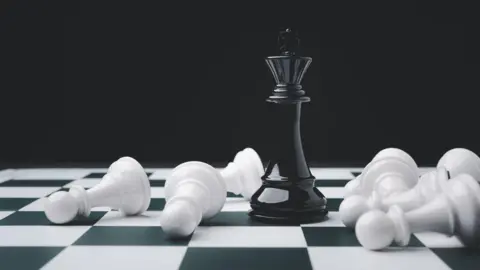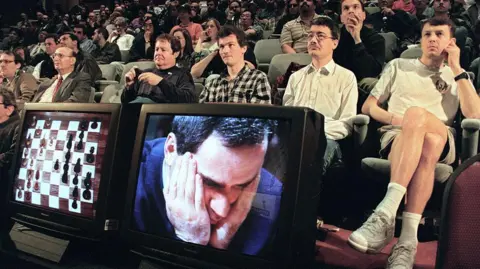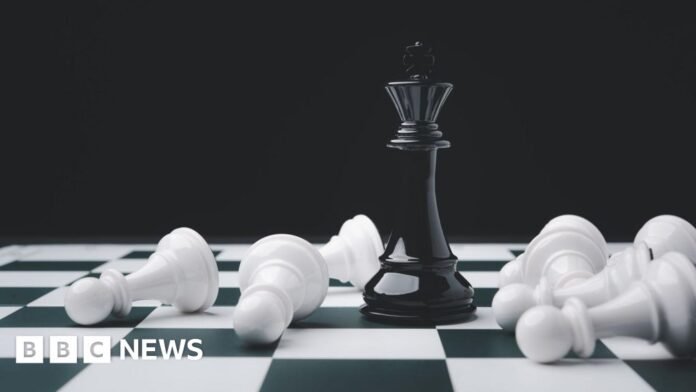Technology reporter
 Getty Images
Getty ImagesChatGPT-maker OpenAI has beaten Elon Musk’s Grok in the final of a tournament to crown the best artificial intelligence (AI) chess player.
Historically, tech companies have often used chess to assess the progress and abilities of a computer, with modern chess machines virtually unbeatable against even the top human players.
But this competition did not involve computers designed for chess – instead it was held between AI programs designed for everyday use.
OpenAI’s o3 model emerged unbeaten in the tournament and defeated xAI’s model Grok 4 in the final, adding fuel to the fire of an ongoing rivalry between the two firms.
Musk and Sam Altman, both co-founders of OpenAI, claim their latest models are the smartest in the world.
Google’s model Gemini claimed third place in the tournament, after beating a different OpenAI model.
But these AI, while talented at many everyday tasks, are still improving at chess – with Grok making a number of errors during its final games including losing its queen repeatedly.
“Up until the semi finals, it seemed like nothing would be able to stop Grok 4 on its way to winning the event,” Pedro Pinhata, a writer for Chess.com, said in its coverage.
“Despite a few moments of weakness, X’s AI seemed to be by far the strongest chess player… But the illusion fell through on the last day of the tournament.”
He said Grok’s “unrecognizable” and “blundering” play enabled o3 to claim a succession of “convincing wins”.
“Grok made so many mistakes in these games, but OpenAI did not,” said chess grandmaster Hikaru Nakamura during his livestream on the final.
Before Thursday’s final, Musk had said in a post on X that xAI’s prior success in the tournament had been a “side effect” and it “spent almost no effort on chess”.
Why is AI playing chess?
The AI chess tournament took place on Google-owned platform Kaggle, which allows data scientists to evaluate their systems through competitions.
Eight large language models from Anthropic, Google, OpenAI, xAI, as well as chinese developers DeepSeek and Moonshot AI, battled against each other during Kaggle’s three day tournament.
AI developers use tests known as benchmarks to examine their models’ skills in areas such as reasoning or coding.
As complex rule-based, strategy games, chess and Go have often been used to assess a model’s ability to learn how to best achieve a certain outcome – in this case, outmaneuvering opponents to win.
AlphaGo, a computer program developed by Google’s AI lab DeepMind to play the Chinese two-player strategy game Go, claimed a series of victories against human Go champions in the late 2010s.
South Korean Go master Lee Se-dol retired after several defeats by AlphaGo in 2019.
“There is an entity that cannot be defeated,” he told the Yonhap news agency.
Sir Demis Hassabis, one of DeepMind’s co-founders, is himself a former chess prodigy.
Meanwhile in the late 1990s, chess champions were pitted against powerful computers.
 AFP via Getty Images
AFP via Getty ImagesDeep Blue’s victory was considered a landmark moment in demonstrating the power of computers to match certain human skills.
Speaking 20 years later, Mr Kasparov likened its intelligence to that of an alarm clock – but said “losing to a $10m (£7.6m) alarm clock did not make me feel any better”.







